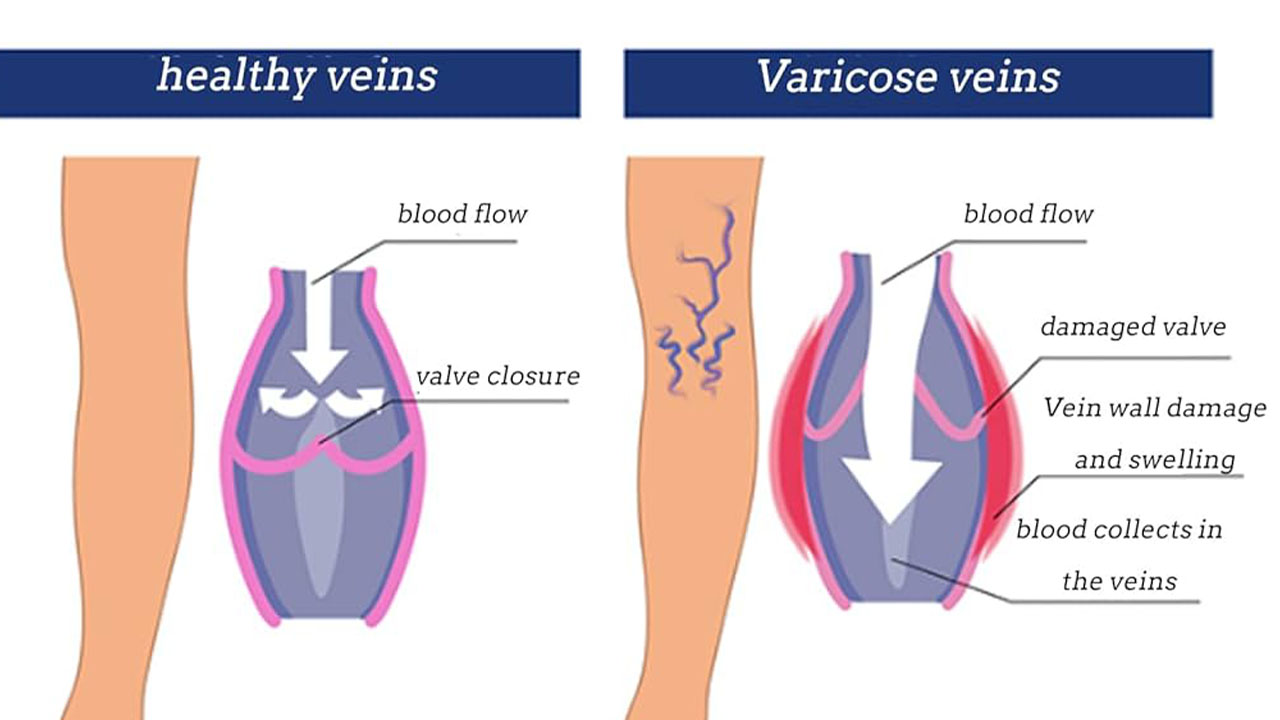Varicose veins are a disorder of blood vessels that usually occurs in the lower extremities. The veins become enlarged and bulky and even can be seen superficially under the skin. The resulting condition is termed varicose veins. Varicose also forms in other parts of the body but mainly in the legs. The major symptoms of varicose veins include Blue and bulky veins. Furthermore, swelling in the legs, pain and heaviness in the legs, and severe cramps. These symptoms are due to the swollen and sometimes twisted veins. The relationship between varicose veins and blood clots is multifaceted and bidirectional.
It is commonly caused by damaged or weak walls of the veins or even due to damage within the valves of the veins. This damage causes the reflux of the blood that further accumulates within the legs and distorts the veins. On the other hand, blood clots protect our body from bleeding but also pose potential threats to the body. When formed abnormally they can cause severe vascular damage.
How are Varicose Veins and Blood Clots Related?
As in varicose veins, blood flow becomes slow or is completely blocked which leads to the formation of superficial blood clots – also termed as superficial venous thrombosis. The superficial formation of the blood clots can worsen the situation and cause severe pain. The pain is often within the lower limbs as well as swelling and discolorations of the affected area.
The relation between varicose veins and blood clots can also be defined by the potential risk factors that lead to the conditions. Risk factors such as obesity, athletic activities, occupations that require standing for long durations, and age can lead to abnormal formation of blood clots that can lead to the development of the disease or vice versa.
Key Risk Factors of Varicose Veins
A key risk factor of varicose veins is an abnormal formation of blood clots due to gradual blood stasis, prolonged immobility, limited circulation, leg sores, etc. If you have varicose veins you are at an increased risk of developing abnormal blood clots that can negatively impact the condition even more. Blood clots can also aid in the formation of vein disease. One of the conditions can work in a cycle to be a cause of the other one. It’s better to get properly assessed by vascular specialists if you develop one of the conditions due to a potential cause as it can be a big threat to your health.
Varicose Vein Treatment
Treatment of varicose veins and various other vascular diseases including PAD are performed professionally at Vascular Health LLC. The professionals at our healthcare clinic are board-certified professionals practicing minimally invasive techniques for the treatment of varicose veins, peripheral arterial disease, uterine fibroids, etc.




